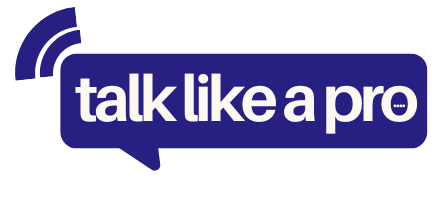Oops! Did I just post THAT?!
We’ve all been there. You wake up to a flood of notifications, only to discover you apparently shared some, shall we say, questionable content while in an altered state last night. Cue the panic sweats and frantic deleting!
But fear not, my fellow social media sinners. I’m here to help you craft the perfect “I was hacked!” excuse to save face and preserve your reputation.
Now, I know what you’re thinking – “Michele, isn’t lying bad?” Well, sure, in an ideal world we’d all own up to our mistakes. But let’s be real – sometimes a little white lie is the path of least resistance.
So grab your favorite hangover cure and let’s dive into the art of the hacking hoax!
Why “I Was Hacked” is the Perfect Excuse
Let’s face it – “I was hacked” is the Teflon of social media excuses. Nothing else sticks quite as well. Here’s why:
-
It absolves you of responsibility. Can’t be blamed for what some shady hacker did!
-
It plays on people’s fears. Everyone’s paranoid about cyber security these days.
-
It’s hard to disprove. Who’s gonna investigate your supposed “hack”?
-
It garners sympathy. Poor you, victimized by evil hackers!
-
It’s vague enough to cover a multitude of sins. One size fits all!
Is it ethical? Debatable. Is it effective? You betcha.
Setting the Stage for Believability
Alright, so you’ve decided to go the “hacked” route. But you can’t just shout “HACKERS!” and expect people to buy it. You need to lay some groundwork first.
Start dropping hints that something’s amiss BEFORE addressing the offending post.
“Ugh, my phone’s acting so weird today!”
“Has anyone else gotten strange DMs from me? I think my account’s been compromised.”
“BRB, gotta go change all my passwords. Again.”
Plant those seeds of doubt early. Get people primed to believe your tale of cyber woe.
Crafting Your Hacking Proclamation
When it’s time to officially declare yourself “hacked,” choose your words carefully. You want to strike a balance between believability and vagueness.
DON’T: “OMG I WAS TOTALLY HACKED BY RUSSIAN SPIES!!1!”
DO: “It appears my account was compromised yesterday. I’m looking into it and have taken steps to secure things. My apologies for any strange activity!”
See the difference? One sounds like a desperate lie, the other like a measured response to a legit security breach.
Some key elements to include:
- Express confusion/concern
- Apologize for any weirdness
- Mention security measures you’ve taken
- Thank people for their patience/understanding
Nail those points and you’ll have folks believing in no time!
The Art of the Non-Apology Apology
Now, you might be tempted to issue a groveling apology for your drunken overshares. RESIST THIS URGE.
Remember, in this narrative YOU are the victim. Victims don’t apologize, they get apologized TO.
Instead, go for the classic non-apology apology. Express regret without actually taking responsibility.
“I regret that unauthorized posts were made from my account.”
“I’m sorry if anyone was upset by content they mistakenly thought came from me.”
“It’s unfortunate that this security breach caused confusion.”
See what I did there? You’re acknowledging the incident without admitting guilt. It’s all about framing, baby!
Doubling Down on the Deception
Once you’ve made your initial “I was hacked” declaration, it’s time to really sell it.
Change your profile pic to a stock image of a padlock.
Post cryptic updates about “working with authorities” to catch the perpetrators.
Share articles about the dangers of weak passwords and public Wi-Fi.
Really lean into your new role as Cyber Security Vigilante. Before long, people will forget all about those embarrassing posts and just admire your commitment to online safety!
When to Pull the Plug
Look, I get it. The temptation to keep milking this excuse is strong. But there comes a point where you need to let it go.
A good rule of thumb? Give it 24-48 hours, tops. After that, you risk someone calling your bluff or, worse, offering to “help” by reporting the “hack” to the platforms.
Once you’ve weathered the initial storm, gradually return to your normal posting habits. Maybe throw in an occasional “So glad to have my account back!” for good measure.
The Nuclear Option: Account Deletion
Sometimes, the “hacked” excuse just isn’t gonna cut it. Maybe you REALLY messed up. Maybe you have eagle-eyed followers who aren’t buying your story.
In these dire situations, there’s always the nuclear option: DELETE YOUR ACCOUNT.
I know, I know. It feels drastic. But hear me out:
- It erases all evidence of your transgressions
- It lets you start fresh with a clean slate
- You can blame the deletion on the “hackers”
- Your dramatic return will overshadow past drama
Just make sure to back up any important content first. Then hit that delete button and watch your problems disappear!
The Moral of the Story
Now, I know what you’re thinking. “Michele, this all seems a bit…dishonest.”
And you’re not wrong! In an ideal world, we’d all take responsibility for our actions, learn from our mistakes, and grow as people.
But let’s be real – we don’t live in an ideal world. We live in a world where one ill-advised post can tank your reputation faster than you can say “tequila shots.”
So while I can’t in good conscience ENDORSE lying…I can certainly provide the tools to do it effectively. Use this knowledge wisely, grasshopper.
Prevention: The Best Medicine
Of course, the BEST way to avoid needing an “I was hacked” excuse is to not post regrettable things in the first place. Novel concept, I know.
Some tried-and-true prevention tips:
- Enable two-factor authentication on all accounts
- Use a password manager for strong, unique passwords
- Avoid posting while under the influence (drunk tweets are never as clever as you think)
- Have a trusted friend change your passwords before a big night out
- Consider a social media detox if you’re going through a rough patch
Remember: an ounce of prevention is worth a pound of “my account was compromised” excuses!
In Conclusion: Hack or Be Hacked
At the end of the day, we’re all human. We all make mistakes. And sometimes, those mistakes end up plastered all over our social media for the world to see.
Whether you choose to own up to your gaffes or blame them on shadowy hackers is a personal choice. There’s no one-size-fits-all solution.
But if you DO decide to go the “hacked” route, at least now you have the tools to do it convincingly.
Just remember – with great power comes great responsibility. Use your newfound excuse-crafting skills wisely. And maybe lay off the late-night tweeting, yeah?
Now if you’ll excuse me, I need to go change all my passwords. I think I’ve been hacked…




